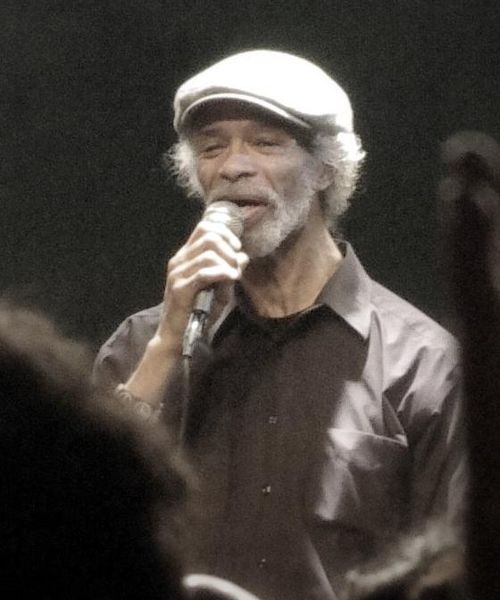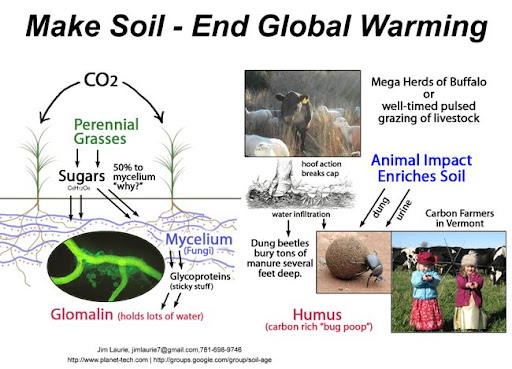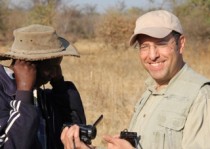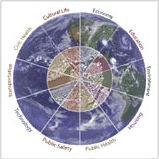You are here
Gil Scott-Heron: An Appreciation

Gil Scott-Heron: An Appreciation
by Seth Itzkan
The six-word phrase, "The revolution will not be televised", is today as much a part of the American idiom as "Oh say can you see", or "Whose woods these are". There are a handful of such totems of our culture, and with that spoken-word anthem from 1970, Gil Scott-Heron both defined an era and created a genre. He is today simultaneously considered the forefather of rap, slam poetry, and hip hop, and his influences on those mediums are as evident as his stanzas-cum-versus are visceral, yet, far greater still, is his championship of causes, which, in the tradition of Woody Guthrie, he brought to mass audiences through simple music and rhyme. But, where Woody spoke for the rural poor and ridiculed the politics of labor, Gil, in his era, spoke for the urban downtrodden and railed against racism. He was an American poet, musician and revolutionary spokesman who has earned his place among a diverse and rarefied crowd, from Francis Scott Keys to Bob Dylan to Eldridge Clever. According to the New York Times, he was "a notable voice of black protest culture", yet, for many, he was more than that, he was the composer and lyricist for a revolution we all believed in, a revolution that still simmers.
Gil's "Revolution", for me, stands should-to-shoulder with Ginsberg's "Howl" and Hendrix's "Star Spangled Banner". To a degree, I would even say it was the spoken word equivalent of a Hendrix solo. Where Hendrix howled, Gil spoke.
The Revolutions Will Not Be Televised (sample stanzas)
The revolution will not be brought to you by the
Schaefer Award Theatre and will not star Natalie
Woods and Steve McQueen or Bullwinkle and Julia.
The revolution will not give your mouth sex appeal.
The revolution will not get rid of the nubs.
The revolution will not make you look five pounds
thinner, because the revolution will not be televised, Brother.
The revolution will not be right back after a message
about a white tornado, white lightning, or white people.
You will not have to worry about a dove in your
bedroom, a tiger in your tank, or the giant in your toilet bowl.
The revolution will not go better with Coke.
The revolution will not fight the germs that may cause bad breath.
The revolution will put you in the driver's seat.
A Slam Dunk On Beat Poetry
You could say that Gil slam-dunked beat poetry, infusing it with the anger and lexicon of urban Black culture, far removed for the Big Sur and Greenwich village audiences of progressive Whites where the medium thrived. But, even that accolade would be an understatement. Gil did far more. He became a successful pop musician, singer and composer, spanning cultures and genres. His albums from the 1970s were a staple and yet in a class of their own, combining fiery spoken word with original jazz and R&B compositions (think Winter in America, The Bottle, Johannesburg). No other beat artist made that transition, even though it was common for beat poets to be accompanied by jazz musicians, (think Jack Kerouac and saxophonist Zoot Sims). For Gil, however, it wasn't about the medium. He was foremost an activist. His words were not meant to entertain, they were meant to motivate. He was angry, and you were going to feel it. Music was simply a means to help spread the word, as his South African protest song Johannesburg, clearly states, "What's the word? Tell me brother have you heard, about Johannesburg". That song itself, from 1976 was the anthem of the anti-apartheid movement in America, and was later remade into the mega hit song "Let me see you ID" which appeared on the United Artists Against Apartheid album, Sun City, featuring a parade of artists, from Miles Davis to Keith Richards. For all his musical achievements, I'm sure he would still rather be considered in the class of pure revolutionary spokesmen.
Like many of you, I grew up under the Gil influence and fortunately I did get to see him perform once, at The Channel in South Boston - of all places. At that show, circa 1983, he sang a sendup about the Space Shuttle, sort of a redo of the legendary, "Whitey on the Moon" (and no, he wasn't talking about Whitely Bulger).
Space Shuttle
(chorus - sung)
Space shuttle
Raising hell down on the ground
Space shuttle
Turn the seasons upside down
Space shuttle
And all the hungry people know
That change don't bring progress when you're poor
(verse - spoken word)
Space was the place
Where it used be thought our dreams were safe
Ideas of innocence and race
Floating above the planet space
Ah, but the distance has been erased
Because Uncle Sam is on the case
ET has joined the arms race
Helping with the military race
Rocketing through the atmosphere
And sliding into second gear
While miles below the people cheer
They are new invaders
It's a new frontier
Then there are those that do not cheer
The gravity of their lives they fear
In their eyes find cold and fear
Rocket sounds are what they hear.
The Revolution Will No Be Televised, But Will It Be On The Internet?
It was 41 years ago when "The Revolution Will No Be Televised" was released, and one can't help but think of that in regards to the current revolutions around the world that are supposedly happening, in part, because of the Internet and social media. There is much to say on that, but enough simply to note it in this context. Fill in the blanks as you will...
To Appreciate Gil
The best way to appreciate Gil, I believe, is to give him another listen, below are links to both the original Revolution, as well as a brand new song for 2010 - a beautiful and clever ballad. Also see appreciations from The New York Times and Rolling Stone.
http://www.nytimes.com/2011/05/29/arts/music/gil-scott-heron-voice-of-black-culture-dies-at-62.html
http://www.rollingstone.com/music/news/gil-scott-heron-forefather-of-hip-hop-dead-at-62-20110528
The Revolution Will Not Be Televised - 1970 Original -
http://www.youtube.com/watch?v=rGaRtqrlGy8
I'm New Here, 2010 - http://www.youtube.com/watch?v=eV_astp3BjM
Be well, and keep your eye on the prize.
GSH - RIP.
- Seth
- Seth's blog
- Log in to post comments



